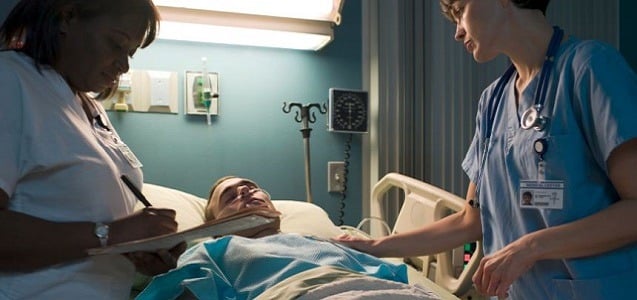Despite advances in neonatal care, preventable injuries to newborns are still prevalent in the United States. Jaundice, a common medical condition in infants, is characterized by yellow tinting of a newborn’s skin and the whites of the eyes (conjunctiva). This yellowing is a sign that there is too much bilirubin (a substance formed by the breakdown of red blood cells) in the baby’s blood. Although most jaundice resolves without causing any harm, it is important that bilirubin levels are carefully monitored in all babies with jaundice because bilirubin is a toxic substance that can rise to dangerous levels in infants.
If severe jaundice (hyperbilirubinemia) is not treated, it can lead to serious lifelong problems such as kernicterus. Kernicterus is a type of permanent brain damage that occurs in a newborn when bilirubin builds up to very high levels and spreads to the baby’s brain, where it infiltrates brain tissue and causes damaging swelling of the brain (encephalopathy). Kernicterus, also called acute bilirubin encephalopathy, causes permanent brain damage that could have otherwise been prevented.
Symptoms of kernicterus can include:
- Extreme sleepiness and lethargy (the baby may have difficulty waking up or can’t be kept awake, does not respond to touching or does not startle from sudden movements).
- A very abnormal, high-pitched cry.
- Poor muscle tone – the baby may seem “floppy” and weak.
- A fever that occurs along with any of these other symptoms.
Approximately 60% of term, and 80% of pre-term, babies develop jaundice in the first week of life and about 10% of breastfed babies are still jaundiced at 1 month of age. Therefore, it is imperative that jaundice is properly recognized, monitored (a simple blood test identifies the baby’s bilirubin level) and treated as soon as possible (typically with phototherapy and, if necessary, blood transfusions), before it develops into kernicterus. If the symptoms of hyperbilirubinemia or kernicterus are not recognized and treated by medical staff, it is medical negligence.
Our experienced attorneys fight for individuals who have been negatively impacted by the negligence of others. If you would like to discuss your child’s potential claim arising from a brain injury, the attorneys at Yost Legal Group are experienced professionals ready to investigate your claim with compassion and determination. For a free consultation, please call us at 1-800-YOSTLAW.


